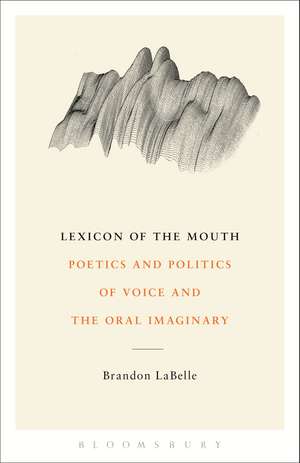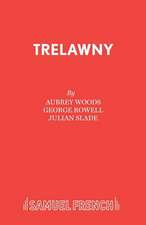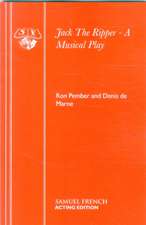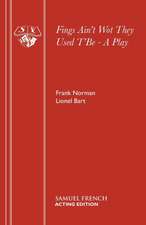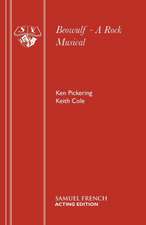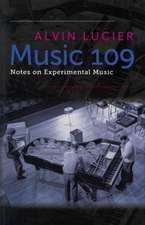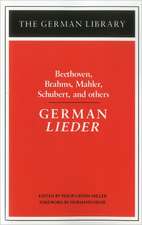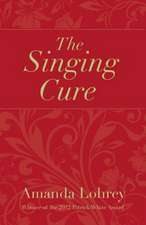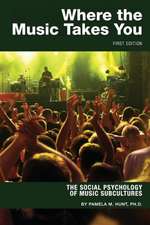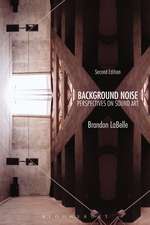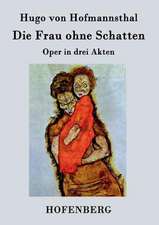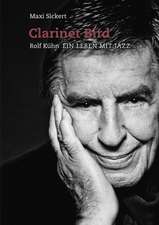Lexicon of the Mouth: Poetics and Politics of Voice and the Oral Imaginary
Autor Brandon LaBelleen Limba Engleză Paperback – 13 aug 2014
| Toate formatele și edițiile | Preț | Express |
|---|---|---|
| Paperback (1) | 191.85 lei 6-8 săpt. | |
| Bloomsbury Publishing – 13 aug 2014 | 191.85 lei 6-8 săpt. | |
| Hardback (1) | 714.51 lei 6-8 săpt. | |
| Bloomsbury Publishing – 13 aug 2014 | 714.51 lei 6-8 săpt. |
Preț: 191.85 lei
Preț vechi: 222.87 lei
-14% Nou
Puncte Express: 288
Preț estimativ în valută:
36.72€ • 38.19$ • 30.31£
36.72€ • 38.19$ • 30.31£
Carte tipărită la comandă
Livrare economică 14-28 aprilie
Preluare comenzi: 021 569.72.76
Specificații
ISBN-13: 9781623561888
ISBN-10: 1623561884
Pagini: 232
Ilustrații: 15 bw illus
Dimensiuni: 152 x 229 x 20 mm
Greutate: 0.36 kg
Editura: Bloomsbury Publishing
Colecția Bloomsbury Academic
Locul publicării:New York, United States
ISBN-10: 1623561884
Pagini: 232
Ilustrații: 15 bw illus
Dimensiuni: 152 x 229 x 20 mm
Greutate: 0.36 kg
Editura: Bloomsbury Publishing
Colecția Bloomsbury Academic
Locul publicării:New York, United States
Caracteristici
Author's first book was widely adopted; he is well placed in a small field.
Notă biografică
Brandon LaBelle is an artist and writer working with sound culture, voice, and situated identity. His previous books, Background Noise: Perspectives on Sound Art (2006) and Acoustic Territories: Sound Culture and Everyday Life (2010) are also published by Bloomsbury. He is the editor of Errant Bodies Press and Professor at the Bergen Academy of Art and Design, Norway.
Cuprins
Preface: Associative Introduction: Movement 1. Bite, Chew, Eat 2. Burp, Choke, Cough, Gag, Spit, Vomit 3. Cry, Scream, Shout, Sing 4. Gasp, Growl, Grunt, Sigh, Yawn 5. Gibberish, Gobbledygook 6. Inner voice, Self-talk 7. Kiss, Lick, Suck 8. Laugh 9. Murmur, Whisper 10. Lisp, Mute, Stutter 11. Recite, Repeat, Vow 12. Whistle Conclusion: Dirty Etc. Notes Bibliography Index
Recenzii
LaBelle shows how the mouth envelops and develops bodies, languages and subjectivities. He constructs what he calls the 'oral imaginary', the forms of figuration and function that define the role of the mouth as a cultural artefact . the many choreographies of the mouth that he presents and the many ways in which those choreographies envelop and inflect voice, culture and politics leaves us in a dizzying, vertiginous space of possibility and potentiality.
An artist and a sound culture theorist, LaBelle offers a wide-ranging epistemology of oral gestures, arguing for the mouth as a contested space in which the politics and psychology of speech and the body are embodied. In a dozen chapters, he explores the oral cavity (and some associated physiology), illustrates its verbal and nonverbal productions, and connects them to topics in cultural theory such as decolonization and transgression .The exemplification favors critical theory (Butler, Kristeva, Lacan, Cixous, Freud) and performance art, and the book will be of special interest to art historians, cultural theorists, and performers. There are also many intriguing observations about such topics as ear and neck biting, kissing protests, and hysterical laughter. Summing Up: Optional. Upper-division undergraduates and above.
In the decade since, a stunning range of new offerings from a variety of publishers has become readily available, and sound studies is a far more expansive discipline. This fact is nowhere more evident than in Bloomsbury Academic's excellent sound studies catalog ... the scholarship here shows how adept the cultural study of sound can be at unearthing the thorny political and social tensions that define contemporary culture.
Future studies will now be able to explore the more hidden cavities and diaphragms of the humanoid body, which oscillate and resonate. Brandon LaBelle's volume is a perfect start and an ideal reference point for these journeys.
To simultaneously emancipate the ear and the mouth is a great accomplishment. To do so with care and love a gift. Lexicon of the Mouth offers erudite ruckus, expansive erotics, destabilizing poetics, liberatory politics. By revealing how 'the drama of the mouth' is greater than that of the word, Brandon LaBelle opens new horizons for performance, music, and the sound arts.
Tuning his ear to the poetics and politics of the mouth, Brandon LaBelle makes a highly original and significant contribution to our understandings of voice in its various modalities and performativities. This is a breathtaking transdisciplinary accomplishment, beautifully written and deeply scholarly; it deftly re-focuses our attention on the multiform assemblages of the mouth -- from the individual to the inter-subjective, from the social to the political, from the bodily interior to public spaces -- and thus evokes a vital new cartography of auditory culture.
An artist and a sound culture theorist, LaBelle offers a wide-ranging epistemology of oral gestures, arguing for the mouth as a contested space in which the politics and psychology of speech and the body are embodied. In a dozen chapters, he explores the oral cavity (and some associated physiology), illustrates its verbal and nonverbal productions, and connects them to topics in cultural theory such as decolonization and transgression .The exemplification favors critical theory (Butler, Kristeva, Lacan, Cixous, Freud) and performance art, and the book will be of special interest to art historians, cultural theorists, and performers. There are also many intriguing observations about such topics as ear and neck biting, kissing protests, and hysterical laughter. Summing Up: Optional. Upper-division undergraduates and above.
In the decade since, a stunning range of new offerings from a variety of publishers has become readily available, and sound studies is a far more expansive discipline. This fact is nowhere more evident than in Bloomsbury Academic's excellent sound studies catalog ... the scholarship here shows how adept the cultural study of sound can be at unearthing the thorny political and social tensions that define contemporary culture.
Future studies will now be able to explore the more hidden cavities and diaphragms of the humanoid body, which oscillate and resonate. Brandon LaBelle's volume is a perfect start and an ideal reference point for these journeys.
To simultaneously emancipate the ear and the mouth is a great accomplishment. To do so with care and love a gift. Lexicon of the Mouth offers erudite ruckus, expansive erotics, destabilizing poetics, liberatory politics. By revealing how 'the drama of the mouth' is greater than that of the word, Brandon LaBelle opens new horizons for performance, music, and the sound arts.
Tuning his ear to the poetics and politics of the mouth, Brandon LaBelle makes a highly original and significant contribution to our understandings of voice in its various modalities and performativities. This is a breathtaking transdisciplinary accomplishment, beautifully written and deeply scholarly; it deftly re-focuses our attention on the multiform assemblages of the mouth -- from the individual to the inter-subjective, from the social to the political, from the bodily interior to public spaces -- and thus evokes a vital new cartography of auditory culture.
